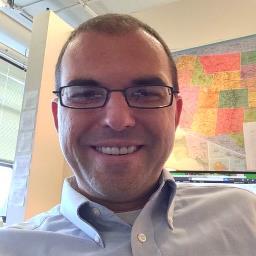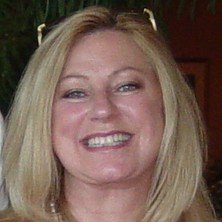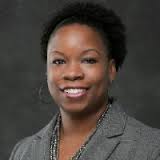The Teacher's Lounge
Educators Reflect on the 2016-2017 School Year
Look Ahead for the 2017-2018 School Year
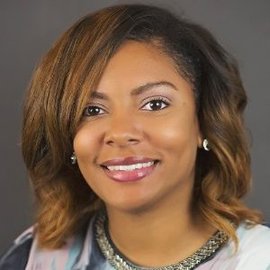
Dr. Michael Robinson: What is the one/biggest educational memory/moment for you in 2016-2017 school year?
Dr. Micaela Herndon: The biggest moment of the 2016-2017 school year was helping over 100 first generation high school students apply and be accepted to college and vocational school. These students never considered post-secondary opportunities as an option and are now experiencing the chance of a lifetime.
Dr. Michael Robinson: What is your hope for education and educators in during the 2017-2018 school year?
Dr. Micaela Herndon: My hope for this school year is that more educators will have the opportunity to explore educational opportunities outside of their comfort zones and find a voice for their students inside and outside of the classroom.
Dr. Micaela Herndon, Educational Consultant
Dr. Micaela Herndon: The biggest moment of the 2016-2017 school year was helping over 100 first generation high school students apply and be accepted to college and vocational school. These students never considered post-secondary opportunities as an option and are now experiencing the chance of a lifetime.
Dr. Michael Robinson: What is your hope for education and educators in during the 2017-2018 school year?
Dr. Micaela Herndon: My hope for this school year is that more educators will have the opportunity to explore educational opportunities outside of their comfort zones and find a voice for their students inside and outside of the classroom.
Dr. Micaela Herndon, Educational Consultant
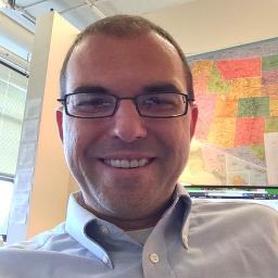 @RickJetter
@RickJetter
Dr. Michael Robinson: What is the one/biggest educational memory/moment for you in 2016-2017 school year?
Dr. Rick Jetter: Learning about school perceptions through my own kids' observations as they wake up each morning to get ready for school. Ages 9, 11, and 13.
Dr. Michael Robinson: What is your hope for education and educators in during the 2017-2018 school year?
Dr. Rick Jetter: I am challenging all educators to seek student voice as their #1 data choice before making any decision.
Dr. Rick Jetter, National Education Consultant, Author, and Speaker
Dr. Rick Jetter: Learning about school perceptions through my own kids' observations as they wake up each morning to get ready for school. Ages 9, 11, and 13.
Dr. Michael Robinson: What is your hope for education and educators in during the 2017-2018 school year?
Dr. Rick Jetter: I am challenging all educators to seek student voice as their #1 data choice before making any decision.
Dr. Rick Jetter, National Education Consultant, Author, and Speaker
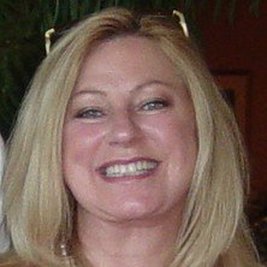
Dr. Michael Robinson: What is the one/biggest educational memory/moment for you in 2016-2017 school year?
Deb Wahlstrom: My biggest aha of the 2016-2017 school year is that of the power of the brain and the brain's ability to heal and rewire itself.
Dr. Michael Robinson: What is your hope for education and educators in during the 2017-2018 school year?
Deb Wahlstrom: Thus, one of my hopes for the new school year is that educators continue to learn about the brain and how it works, the impact of trauma on the brain, and what it takes for the brain to heal.
Deb Wahlstrom, Turnaround School Specialist
Deb Wahlstrom: My biggest aha of the 2016-2017 school year is that of the power of the brain and the brain's ability to heal and rewire itself.
Dr. Michael Robinson: What is your hope for education and educators in during the 2017-2018 school year?
Deb Wahlstrom: Thus, one of my hopes for the new school year is that educators continue to learn about the brain and how it works, the impact of trauma on the brain, and what it takes for the brain to heal.
Deb Wahlstrom, Turnaround School Specialist
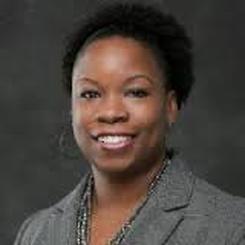 @DrKBDaugherty
@DrKBDaugherty
Dr. Michael Robinson: What is the one/biggest educational memory/moment for you in 2016-2017 school year?
Dr. Kelly Bullock Daugherty: As I've been reflecting on this question this week, I think the most profound moment came at the end of the school year. Leading up to this moment, I'd had the opportunity to present to our staff on the topics of Teacher Efficacy and Stereotype Threats. I reminded them of their commitment to every child and the responsibility to connect with each, meeting them where they are and recognizing that they enter our building bearing the weight of societal threats. I worked diligently at modeling what this looks like in the context of the school day by simply loving and edifying each of my scholars, letting them know that I believed in them. I would send motivational quotes and messages encouraging my colleagues not to give up, even though the toughest children make us want to walk right out and never return! Some teachers paid no mind, but some did. I received this message from a colleague on the last day of school.
“Thank you for teaching me to look at the children differently this year. I wrote them all cards to tell them how special and amazing they are and how they can do anything they set their minds to!”
Dr. Michael Robinson: What is your hope for education and educators in during the 2017-2018 school year?
Dr. Kelly Bullock Daugherty: It's interesting. I was trying to form the words to respond to this question today and I heard something in today's sermon that really struck a chord.
Education is in a state of shock right now. A state of emergency, if you will. It seems as if our country is so hell bent on competing with other countries that they forget about the ones that we are serving, the children. My hope for educators is that we become “interrupters” for change. Interrupters that are not afraid to speak up for what is right for children. Interrupters who will advocate for change in educational reform and for the families we serve. There are decisions being made that negatively impact our students, particularly in the urban school setting. If educators are not willing to become comfortable with making policy makers, administrators, colleagues, and community stakeholders uncomfortable, who then will be left to impact change in our urban communities? The school to prison pipeline does indeed exist, but if we are passionate and believe in our purpose as educators and that our children can learn, we can begin to breakdown that threat and close gaps. It is for these reasons that I challenge my colleagues, whether on the front line in classrooms or sitting in offices evaluating and making decisions, to become “interrupters for change” during the 2017-18 school year.
Dr. Kelly Bullock Daugherty veteran K-12 Public School Educator
Dr. Kelly Bullock Daugherty: As I've been reflecting on this question this week, I think the most profound moment came at the end of the school year. Leading up to this moment, I'd had the opportunity to present to our staff on the topics of Teacher Efficacy and Stereotype Threats. I reminded them of their commitment to every child and the responsibility to connect with each, meeting them where they are and recognizing that they enter our building bearing the weight of societal threats. I worked diligently at modeling what this looks like in the context of the school day by simply loving and edifying each of my scholars, letting them know that I believed in them. I would send motivational quotes and messages encouraging my colleagues not to give up, even though the toughest children make us want to walk right out and never return! Some teachers paid no mind, but some did. I received this message from a colleague on the last day of school.
“Thank you for teaching me to look at the children differently this year. I wrote them all cards to tell them how special and amazing they are and how they can do anything they set their minds to!”
Dr. Michael Robinson: What is your hope for education and educators in during the 2017-2018 school year?
Dr. Kelly Bullock Daugherty: It's interesting. I was trying to form the words to respond to this question today and I heard something in today's sermon that really struck a chord.
Education is in a state of shock right now. A state of emergency, if you will. It seems as if our country is so hell bent on competing with other countries that they forget about the ones that we are serving, the children. My hope for educators is that we become “interrupters” for change. Interrupters that are not afraid to speak up for what is right for children. Interrupters who will advocate for change in educational reform and for the families we serve. There are decisions being made that negatively impact our students, particularly in the urban school setting. If educators are not willing to become comfortable with making policy makers, administrators, colleagues, and community stakeholders uncomfortable, who then will be left to impact change in our urban communities? The school to prison pipeline does indeed exist, but if we are passionate and believe in our purpose as educators and that our children can learn, we can begin to breakdown that threat and close gaps. It is for these reasons that I challenge my colleagues, whether on the front line in classrooms or sitting in offices evaluating and making decisions, to become “interrupters for change” during the 2017-18 school year.
Dr. Kelly Bullock Daugherty veteran K-12 Public School Educator

